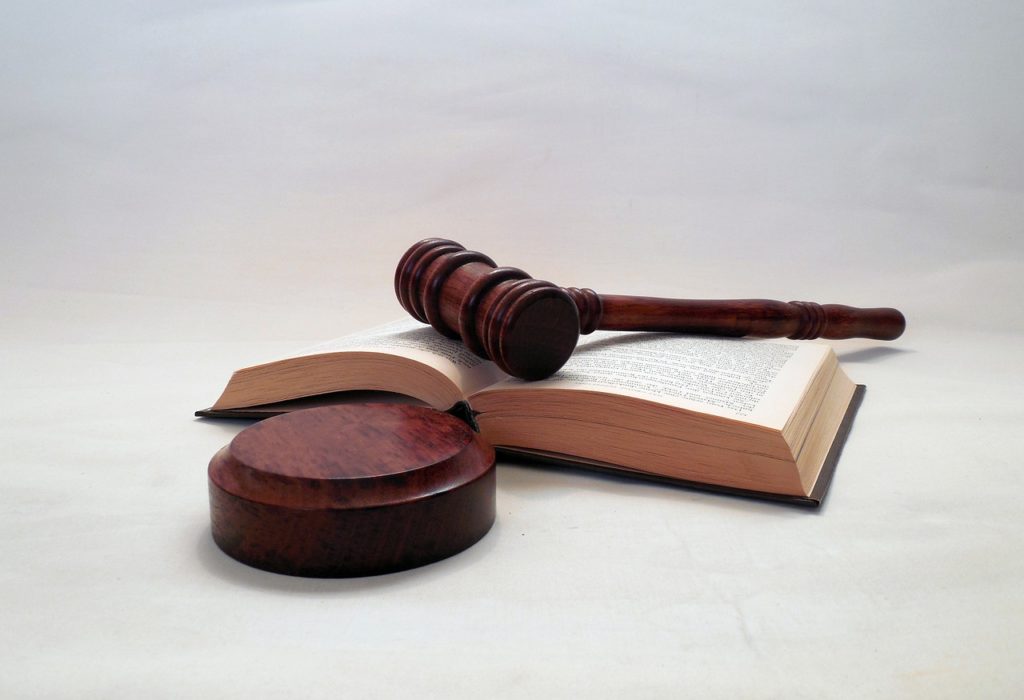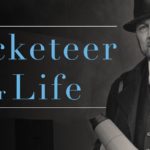Once in a while I read something that is downright silly. For example, America magazine’s book editor, in the publication’s Spring 2017 issue, described a recent article as “call[ing] our attention to the disappearance of American Christian public intellectuals.”
I immediately thought of over a dozen people whose involvement in public life disproves that statement, ending with the real clincher: “And John Noonan still lives.”
Alas, the validity of my most compelling example was short-lived. John T. Noonan, Jr., passed away on April 17, at the age of 90.
Holding graduate degrees in law (Harvard) and philosophy (Catholic University of America), he served as a law professor at Notre Dame, Berkeley, and other universities, as an advisor to the US bishops and the Vatican, and for three decades as a federal appellate judge. What distinguished him from many judges was his grasp of the philosophy and history behind legal ideas, and his conviction that written law serves fundamental principles and moral insights that have stood the test of time.
Start your day with Public Discourse
Sign up and get our daily essays sent straight to your inbox.Besides countless articles he leaves us over a dozen books, including historical studies of legal personhood, bribery, slavery, contraception, religious freedom, and Church law on marriage. Clearly “a Renaissance man,” as his colleague Judge Diarmuid O’Scannlain recently said, he was marked by his wit, by his love and respect for those who disagreed, and by his Christian humility.
While I met John Noonan in the 1980s, I first encountered him in print as a student. He had edited a 1970 book advancing various views on abortion, based on a conference held at Harvard in 1967. His own essay, “An Almost Absolute Value in History,” rebutted the claim that the Catholic Church did not see abortion as an attack on human life until the nineteenth century (a false claim that even worked its way into the Supreme Court’s deeply flawed 1973 decisions).
Characteristically, his approach was to show how early Christians’ respect for all human life, including unborn life, as a gift of God was tested and vindicated through long debate over ensoulment and the “hard cases” allegedly justifying some abortions. The Church’s pro-life stance prevailed not so much by condemning other views, but by engaging them and showing how they were incompatible with that core insight about human life. Through centuries of change, this was one value that perdured and was only strengthened through discussion.
At a time when my Catholic faith was tested by a very secular university environment, his essay helped me appreciate the extent to which traditional Christian moral teachings crystallized long reflection and hard-won wisdom. This was a formative influence in my decision to work on pro-life issues.
On one other matter, I ultimately found myself disagreeing with him. Beginning in the 1960s he applied his gifts for historical and legal analysis to arguing that the Catholic Church could, and should, change its teaching against contraception. His scholarly contributions led him to a position on the Vatican commission advising Pope Paul VI on the issue. His stance won favor with a majority of the commission—but not with the Holy Father, who was more persuaded by the theological argument of the commission’s “minority” report.
After marrying, my wife and I discovered that living in accord with the teaching would be much better for her health and for our marriage. I never discussed the matter with Professor Noonan, but I think he would have appreciated that our position was informed by experience and reflection and not only by obedience.
On accepting an offer to work for the US bishops’ Secretariat for Pro-Life Activities in 1980, I quickly realized I had little preparation for the legal and constitutional issues involved. Fortunately, by 1979 Professor Noonan had written an eminently readable book on those issues, A Private Choice: Abortion in America in the Seventies. Reading it was invaluable to me then, and it remains on my short list of indispensable pro-life books.
Finally, through my work I had the great privilege of speaking with and learning from Professor Noonan in the years before President Reagan named him to the federal bench in 1985. As an outside advisor to the bishops on pro-life legal issues, he was generous in offering his insights and appreciating the ideas of others.
In the 1970s he had written the only constitutional amendment for reversing Roe v. Wade ever to be endorsed by half the members of a House committee. In 1983 a modified version of his proposal received the only full Senate vote on such an amendment. The Senate Judiciary Committee, approving the latter amendment, quoted his description in A Private Choice of just how unlimited the Supreme Court’s decisions had been, countering claims that the court had only legalized abortion “in the first three months”: “For the nine months of life within the womb the child was at the gravida’s disposal—with two restrictions: She must find a licensed clinic after month three; and after her child was viable, she must find an abortionist who believed she needed an abortion.”
In neither case was his proposal approved by Congress, which only led him to develop other creative ideas for advancing life. Energized by the Supreme Court’s 1980 decision upholding Congress’s right to use its funding power to encourage childbirth over abortion, he would raise questions like: why can’t Congress amend the tax code to tax income from performing abortions at, say, 100%, and give the money to support centers for pregnant women?
Later, serving on the United States Court of Appeals for the Ninth Circuit, Judge Noonan made a decisive contribution to a great moral issue at the other end of life. His 1995 opinion in a Ninth Circuit panel’s two-to-one decision upholding Washington state’s law against assisted suicide, joined by Judge O’Scannlain, was the first opinion on this issue by a federal appellate judge. (Full disclosure: as far as I know, it was also the first and last such opinion to cite an article of mine.)
Judge Noonan did not ignore the claims of compassion for suffering patients. “Compassion is a proper, desirable, even necessary component of judicial character,” he wrote, “but compassion is not the most important, certainly not the sole law of human existence. Unrestrained by other virtues . . . it leads to catastrophe. Justice, prudence, and fortitude are necessary too.”
The full Ninth Circuit reversed his decision, declaring a constitutional right to assisted suicide, but in 1997 a unanimous Supreme Court vindicated his insight. Reviewing the governmental interests protected by laws against assisting a suicide, Justice Rehnquist’s majority opinion drew heavily from Judge Noonan’s analysis.
On other matters as well, his view ultimately prevailed on our highest court. In 1999 he dissented from a Ninth Circuit decision allowing the government to use thermal imagery to probe a private residence without a search warrant; but it was the Noonan position that the Supreme Court affirmed. His 1988 dissent in EEOC v. Townley, where he argued that a closely-held for-profit corporation has a right of religious freedom, anticipated the Supreme Court’s 2014 decision in Burwell v. Hobby Lobby.
And that is as close as John Noonan would get to being a Supreme Court justice, a position for which he was eminently qualified. He supported his church’s teachings on social justice as well as on abortion and euthanasia. The latter kept him off Democrats’ short lists; his views on the death penalty, and on the rights of criminal defendants and immigrants seeking asylum, would turn off many Republicans. He was also no strict originalist in constitutional interpretation, as he would probe beneath the text of a constitutional provision to find the universal moral principle at its root. He served on the Ninth Circuit until his death, taking senior status after 1996.
One of Judge Noonan’s last nationally reported public appearances was controversial. In 2009 Professor Mary Ann Glendon, another great pro-life legal expert, declined the University of Notre Dame’s offer of its prestigious Laetare Medal because the university would be honoring President Obama at the same commencement. To my chagrin and that of other pro-life advocates, Judge Noonan, who had received the award in 1984, agreed to speak in her place. But he did so to speak truth to power, not to appease it.
In his remarks he led into the abortion issue by citing things that “all of us know are wrong,” though each has had its defenders in past times: genocide, torture, slavery. As for abortion, some had said the Supreme Court “settled” its status in 1973, but “that settlement was stillborn.”
Judge Noonan had drawn analogies between slavery and abortion many times in A Private Choice and other writings. Now he drew a new one. President Lincoln, he said, once thought the freed slaves should emigrate to another part of the world. It took the persistent advocacy of abolitionists like Frederick Douglass to convince him that black Americans were as much Americans as anyone else and deserved to stay right here. In the same way a “man of conscience”—such as the president sitting a few feet away from him—may not “get” the argument that the unborn are fellow Americans meriting protection but could be brought by respectful dialogue to see the truth of the matter. We can work together, he concluded, “serenely secure that the truth will out!” He received a standing ovation from the faculty and graduating class at Notre Dame.
Regarding the president, of course, his hopes would be disappointed. In his second term Obama even betrayed the pledge he made that day in his own commencement address, to honor the conscience rights of those who reject abortion.
But even in this expansion of the abortion agenda beyond “choice” into the realm of coercing conscience, the president fulfilled a prediction Professor Noonan made in his 1979 book. He said that the abortion lobby, like the slave power before it, was driven to overreach itself. Lincoln had raised the rhetorical question: what would satisfy the supporters of slavery? “This, and only this: Cease to call slavery wrong, and join them in calling it right. And this must be done thoroughly—done in acts as well as in words.” The dynamic of their own position, forcing them to demand “the moral surrender of their critics,” sparked a “counter-dynamism” that ended slavery.
In A Private Choice and elsewhere, John Noonan applied this analysis to abortion: advocates could not rest until they made everyone say they were right. By insisting that this grisly practice must be supported by government as a positive good and an essential aspect of healthcare, abortion advocates are turning off Americans with any moral concern about abortion. I believe this extremism helped create a backlash against their favored candidate in the recent presidential election; the new declaration that no pro-life American can be a Democrat may deal that party a serious blow.
He overestimated President Obama. But John Noonan’s vision of progress through respectful engagement over fundamental moral issues was never more needed than today, when “bipartisan” is a dirty word and the exchange of ideas has given way on some college campuses to posturing and violence. His response to bad ideas and false speech was to make sure he had more cogent ideas, more accurate facts, more persuasive arguments, and a firm grasp of the basic principles making life in community possible. Because he lived by the motto inscribed on his Laetare Medal—“Great is Truth, it will prevail”—he was a great Catholic intellectual. I now picture him residing with (and possibly raising a few final questions with) Him who is the Way, the Truth, and the Life. His legacy is one that a new generation of publicly engaged Christians should strive to live up to.













